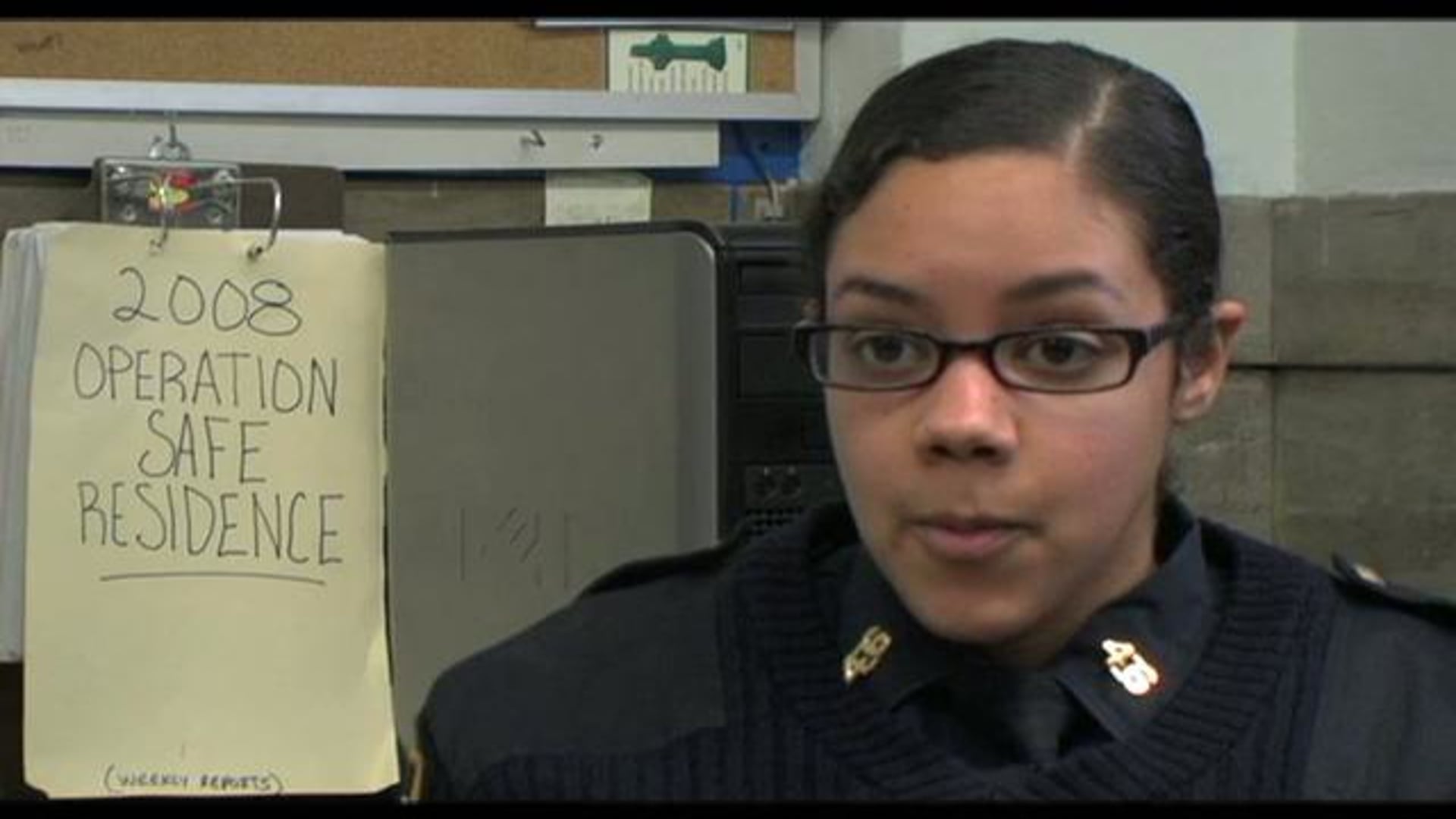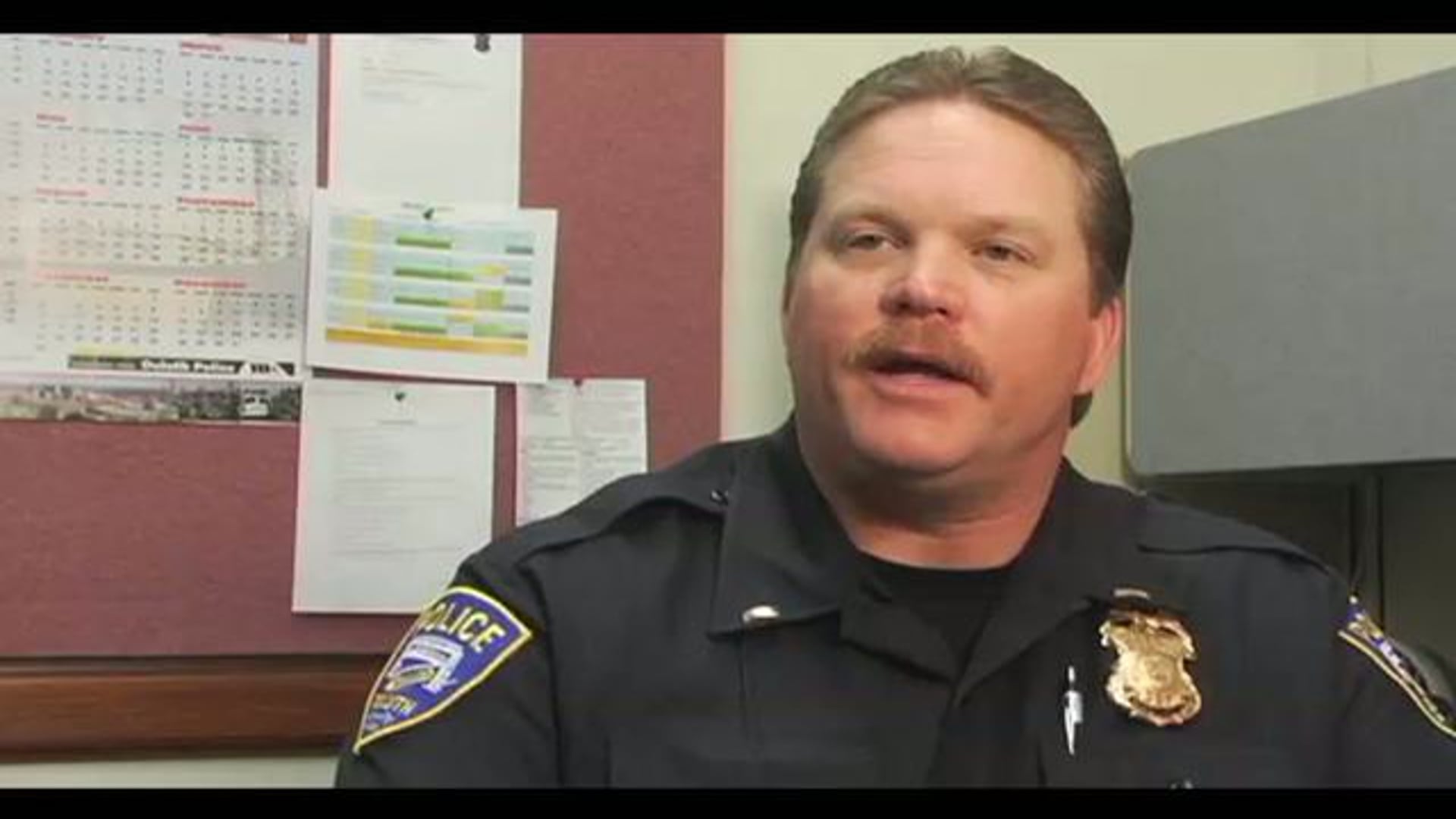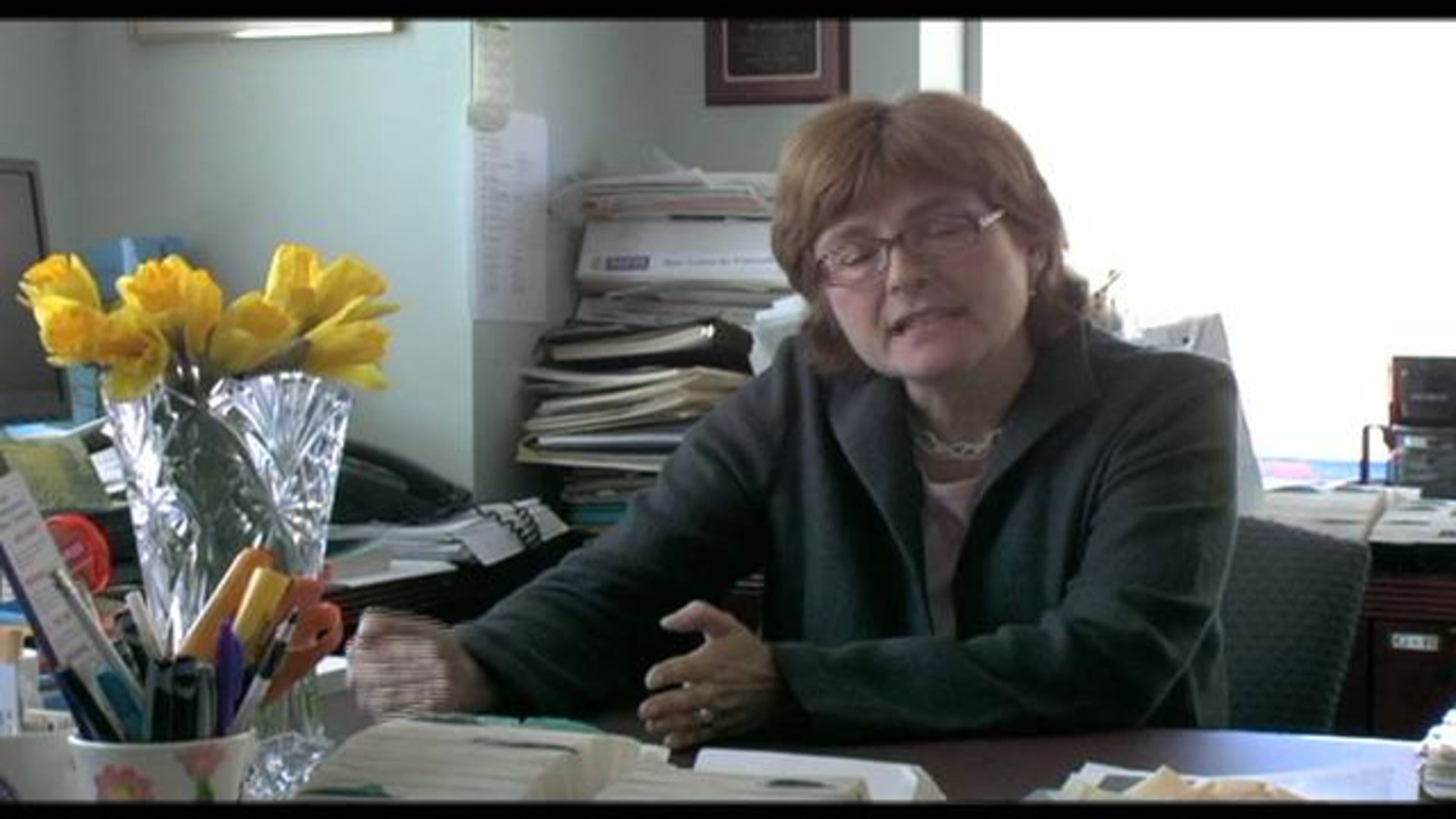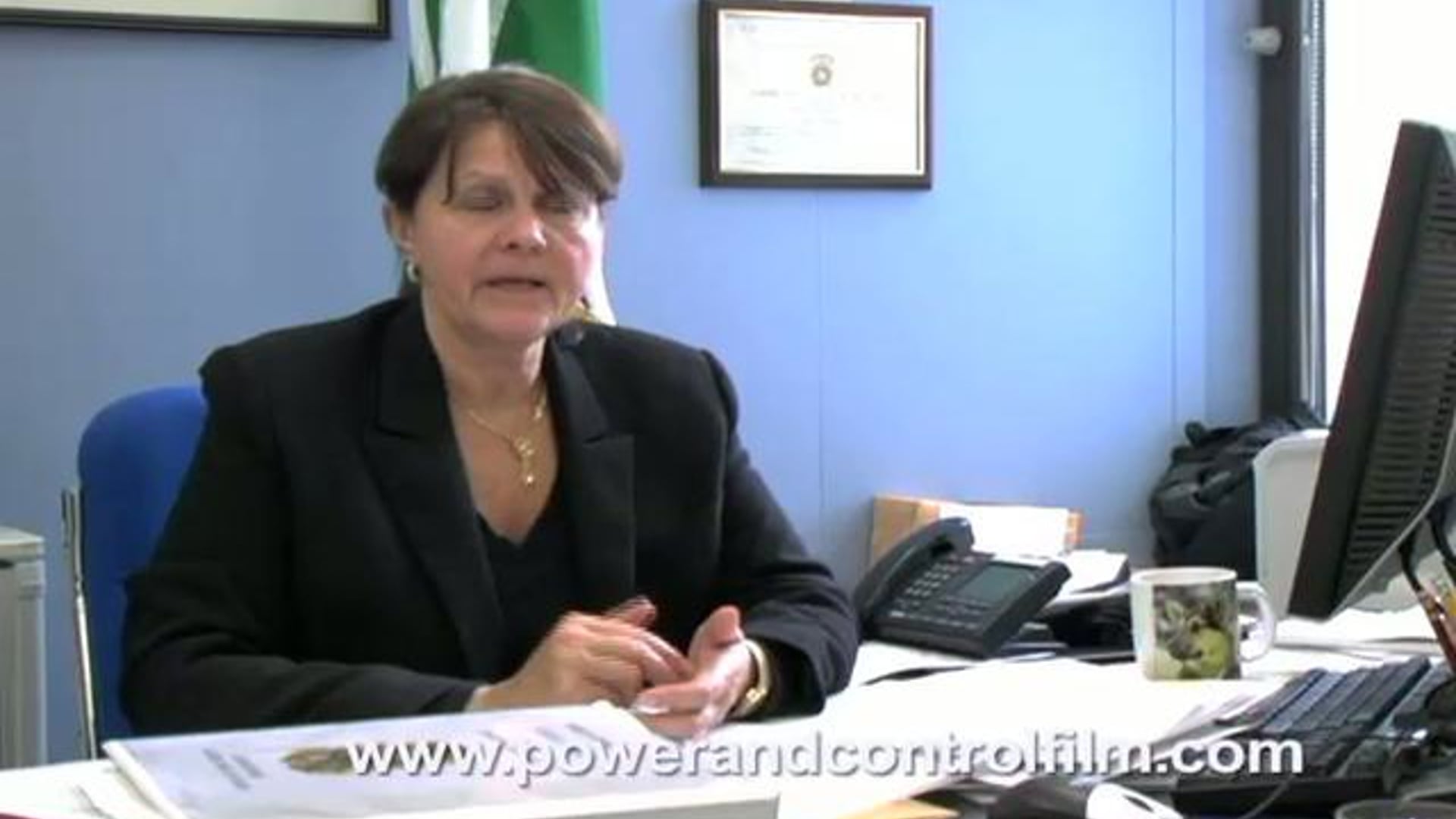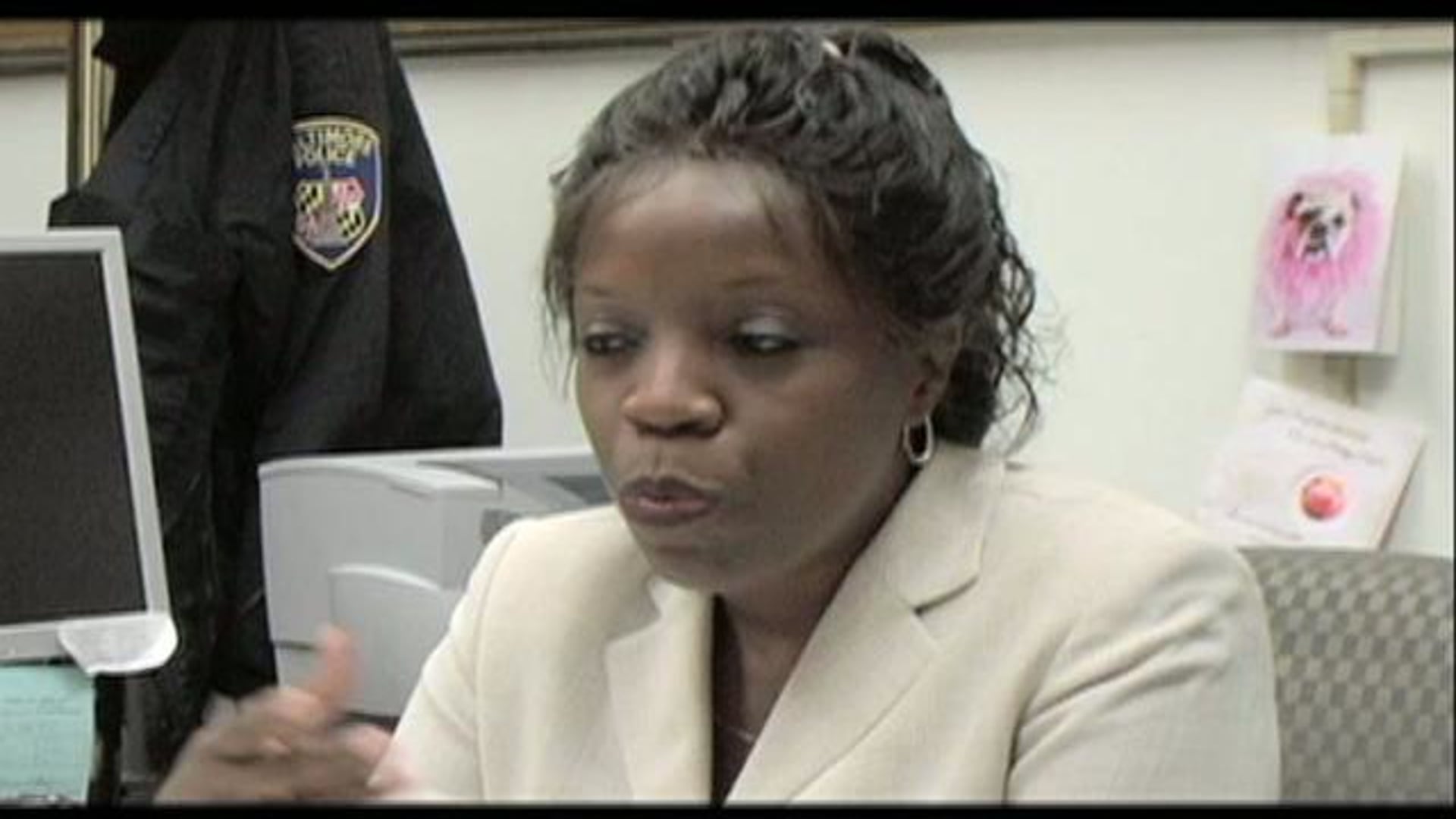When victims recant
The main priorities of the unit is to develop, to put together good cases, so that when it’s time for prosecution we can get some jail time. One of the problems with domestic violence is a lot of the time the victims recant, or they change their mind for whatever, for various reasons. So, when it’s time to come to court, the way it was set up before, when patrol would go out, handle a call, even if it was a serious call, and time to go to court, that’s all they had. They had nothing else. When we brought our unit into the picture, what we do now, is we do photo line ups, we do recorded video tape statements from the victims, where we can actually get the physical condition of the victim, showing the injury, showing the emotional state, everything on video tape. We also take tape statements from the suspect. So if we got a statement from the victim at the time when it happens, a statement from the suspect when he’s arrested, we have photo line ups that we do where the victim identifies them. We get 911 tapes. We get the medical records. Everything dealing with the case. We do search and seizure warrants, we do whatever you can think of we do to try to build up a case, so that when it’s time to come to court, even if the victim says, “it didn’t happen they just told me to say that,” or whatever.
Targeting repeat offenders
We have all this other stuff that we can move forward without them, because a lot of the times, most of the cases that we have are repeat offenders. They’re repeat victims. You know they’re constantly being victimized, because they’ll change their minds and they don’t get any jail time. So, one thing we’re looking at with this project is hoping that they’ll get some jail time, so that victims will be made aware of services available. Like counseling, we have advocates here. That’s something we didn’t have in the district. So we have victim advocates that are actually here so that they will stay with the victim, encourage them to move forward with prosecution let them know about services available they help them with housing, they help them with a safety plan. We do a lot, a lot for the victims to hopefully keep them on board so they will be willing to testify. But, if they don’t want to we still have a lot of other evidence and things to use when its time to go to court.
Stretching detective resources
Resources are always an issue. Initially when the program began back in ’96 and ‘97 there were two detectives, and one community services officer in each district, and now
prior to our centralizing it, it was chopped down to just one detective, and a community service officer, and some districts didn’t have a community service officer, it was just one detective. So what we had to was try to figure out is a way to make it work with nine detectives. Only nine detectives, being available on a 24-7 basis. Prior to us doing this they were 9 to 5 and Monday through Friday. So there was no availability on the weekends, or on the evenings. And if they were off, there was no one in the districts, or no one to handle the domestic violence incidents. One thing, a detective, they have to have a good rapport with people. They have to understand the dynamics of domestic violence, because it gets frustrating at times when you see someone, you know, hurt or injured and they don’t want to cooperate, or they don’t want to move forward. The detectives have to try to understand why. So all of our detectives receive training to try to understand the dynamics of domestic violence and once you get into it you kind of develop a passion for it. And so you have to keep,you have to be patient with the victims and you have to let them know. A lot of people don’t know that they’re in a bad situation. So it’s just the way that you communicate with them, and try to let them know that you are there to help them.
Working with Mercy Hospital Center
With Mercy hospital, we have this relationship with Mercy. Initially when we started talking about this project we didn’t you know, we weren’t thinking about them. Our main concern was the coordination with the states attorneys office and having advocates, but you never really looked at the hospital aspect. And part of that was Colleen Moore, she sits on the domestic violence coordinating council, and she told us about this technology that they had with this light for choking, and you know we get a lot of chokings, and it’s difficult. The majority of the time you may not see any injuries.
So, what happened is, when she told us about that, and then we started working with them, and then the nurse, we met with the nurse there that does that. And she was very enthusiastic about the program that we were setting up here. As a matter of fact, we were talking about down the road, one of our rooms down there to have a like a little triage area, and they can come over here, and do the test, and do a triage for the victim. So, that’s something we are still looking at doing. But it’s very exciting, so as soon as we get a case with a strangulation we’ll call them. We’ll call the nurse right away and she’s been very receptive, and she’s there and she responds or she’ll have somebody else come in, and they’ll do the test, and a lot of times it’ll show, it shows the internal injuries. So, and we brought them there, and Mercy they have a really good domestic violence program over there too. So they’ve helped out. It’s just a big coordination that we got going on, and we work well together.

